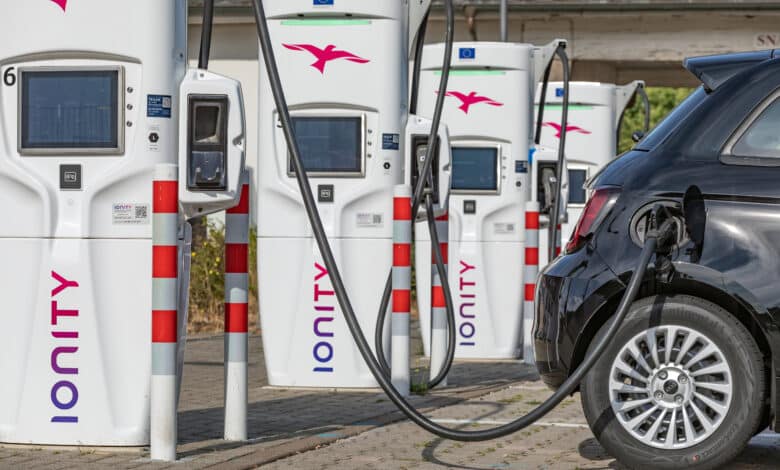
While many charging providers are currently increasing their prices, IONITY is taking a different approach. As a result of a Europe-wide price adjustment, you can now also charge more cheaply in Germany. Provided you have the right subscription model.
New tariffs at IONITY ensure price reduction
While the charging provider’s prices have always been at the same level throughout Europe, the provider has now rethought and adjusted its pricing policy. Three different tariffs are new. These are Ionity Direct, Passport Motion and Passport Power. The entry-level tariff is IONITY Direct.
Its costs for one kilowatt hour vary from country to country. In Germany, you pay 69 cents per kilowatt hour charged. In contrast to the other two tariffs, there are no monthly basic charges here. With the Passport Motion tariff, you have to pay 3.99 euros in the first month and receive a more attractive charging price in return.
These vary considerably from country to country. Anything between 33 and 62 cents is possible here. The basic fee increases to 5.99 euros after the trial month. At €7.99 for the trial month and a standard subscription fee of €11.99, the IONITY Passport Power tariff is even more expensive. However, the charging costs here are also reduced to between 26 and 51 cents.
New prices apply with immediate effect
Anyone in Germany who wants to benefit from the provider’s pricing policy, which will apply from May 28, must opt for the Passport Power tariff. Here you pay 39 cents per kilowatt hour charged. In comparison: With the IONITY Passport Motion tariff, you pay 49 cents per kilowatt hour. However, the monthly basic fee is 6 euros cheaper, which is why you should make your decision based on your charging behavior.
You will feel the effects of the new prices throughout Europe. IONITY plans to introduce its new tariff structure in Austria, Belgium, Croatia, the Czech Republic, Denmark, Estonia, Finland, France, Germany, Hungary, Ireland, Italy, Latvia, Lithuania, the Netherlands, Norway, Poland, Slovakia, Slovenia, Spain, Sweden, Switzerland and the UK. Will the competition follow suit?



